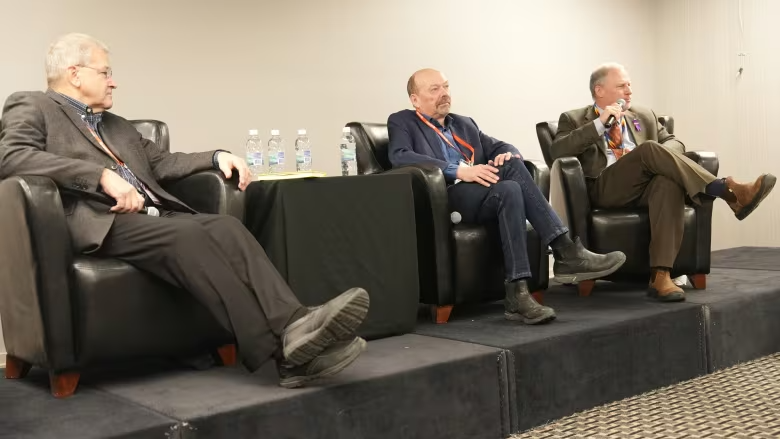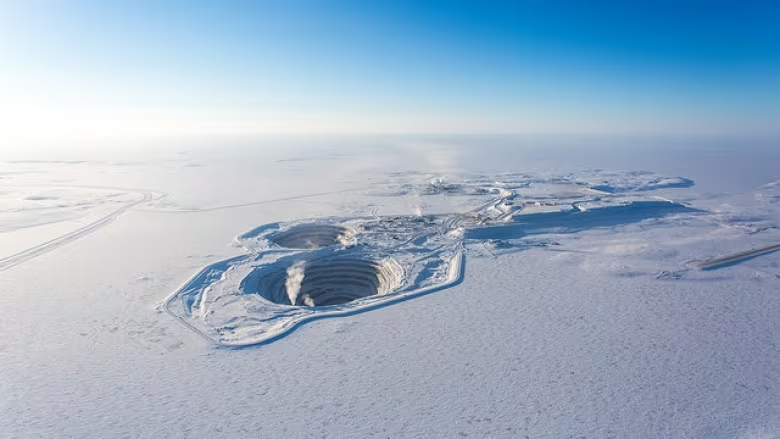Mining companies call on gov’ts to invest in N.W.T.’s ailing mineral sector

‘We’ve got a multi-billion dollar industry that’s now at risk,’ says former chamber of mines director
At this year’s Yellowknife Geoscience Forum, players in the mining industry issued an urgent call to all levels of government to invest in the Northwest Territories’ ailing mining sector.
The calls were issued during a series of talks and panel discussions held at the Chateau Nova Hotel in Yellowknife on Tuesday.
The focus of the discussions was on how the Northwest Territories can attract new mineral projects to replace the diamond mines. At least two of the territory’s three diamond mines are slated to close by 2030.
Tom Hoefer, a former director of the N.W.T. and Nunavut Chamber of Mines, was very critical of the N.W.T. government’s response to the issue.
“We’ve got a multi-billion dollar industry that’s now at risk, and we’ve sort of just sat back and said, ‘maybe it will go alright by itself,'” he said. “You need to invest equal kind of value in maintaining it.”
Hoefer called on Premier R.J. Simpson to “roll up [his] sleeves” and take the lead on this, in partnership with Indigenous governments.

Hoefer and his fellow panelists on Tuesday — Yellowknife city manager Stephen Van Dine and former CanNOR regional director Matt Spence — also called on the federal government to invest more in the territory’s mining sector.
One measure that all three advocated for was a federal North-of-60 mineral exploration tax credit to make prospecting in the North cheaper.
The forum’s keynote speaker Darrell Beaulieu, president and CEO of Denedeh Investments Inc., said that federal investments in infrastructure projects like the Mackenzie Valley Highway or Taltson Hydro Expansion could also make a big difference for the mining industry as well as small communities.
Beaulieu also said he wanted to see more collaboration between Indigenous governments and mining companies, not just through impact benefit agreements but also through co-ownership models. The idea received widespread support from those present.
Related stories from around the North:
Canada: N.W.T. gov’t to review impact benefit agreements between mines and Indigenous groups, CBC News
Sweden: Swedish developer GRANGEX buys iron ore mine on Norway’s border to Russia, The Independent Barents Observer
United States: Canada and U.S. make co-investment in Fortune Minerals N.W.T. project, The Canadian Press



